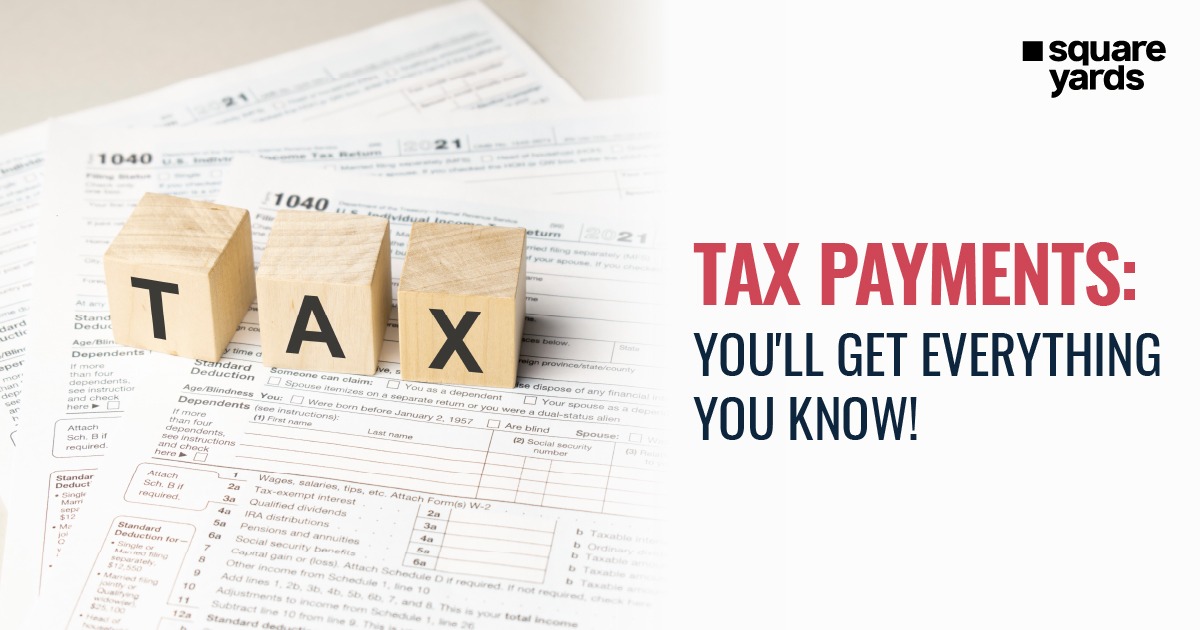You can never go wrong with passive, sturdy income that pays hefty returns. One of the sure shot ways to achieve such income mode is to invest in a REIT or Real Estate Investment Trusts. Investing in REITs allows investors to gain exposure to the real estate market without the hassle of owning and managing physical properties. REITs can allow you to diversify your playfield in investments besides yielding long term capital appreciation.
To provide you better understanding about the same, this article will guide you through pros and cons and methods to invest in a REIT and get hefty returns. So, let’s dive right into it!
Table of contents
What Do You Mean By REIT?
A Real-Estate Investment Trust (REIT) is a type of investment curating vehicle that operates, owns, and manages finance-producing real estate. REITs are generally publicly traded, meaning they are sold on a stock exchange, and offer investors a liquid stake in real estate. REITs typically own and manage a variety of real estate assets, including office buildings, apartment complexes, shopping centers, warehouses, hotels, and other types of real estate. REITs may also invest in mortgages or provide financing to developers. It provides investors with a liquid stake in real estate and offers a reliable source of dividend income. There are two broad divisions when it comes to investing in a REIT, public and private, and they’re described comprehensively below.
Public REITs vs Private REITs
This is a crucial question that arises when you want to meddle between choosing in different kinds of REITS, Private and Public. It becomes equally important to each of the types thoroughly before diving into anything and not getting returns as per your expectations. Both the entities are explained with comprehensive comparison.
- Public REITs are trusts that are listed on a stock exchange and can be bought and sold by individual investors. Private REITs, on the other hand, are not listed on a stock exchange and can only be acquired through private transactions.
- Public REITs in India offer the investors a more liquid option to invest in the real estate market. The investor can purchase and sell the units of the REITs anytime the stock exchange is open. Public REITs are regulated by the Securities and Exchange Board of India (SEBI) and offer more transparency compared to Private REITs.
- Private REITs, on the other hand, are not listed on any stock exchange and are structured and managed by private companies. Private REITs are not regulated by SEBI and may not offer the same level of transparency as public REITs. Furthermore, the investment in private REITs is not as liquid as public REITs and the investor may have to wait to be able to sell the units.
- Additionally, public REITs offer more liquidity and transparency to the investor compared to private REITs.
Some of the famous REITs in India are Embassy Office Parks REIT, Mindspace Business Parks REIT, India Reit Fund, Godrej Properties Real Estate Investment Trust, K Raheja Corp Realty Fund, Prestige Estates Projects Real Estate Investment Trust, Xander Real Estate Investment Trust, Blackstone India Real Estate Investment Trust, Brookfield India Real Estate Investment Trust, Oberoi Realty Real Estate Investment Trust.
What are the Advantages and Disadvantages of REIT Investing?
When it comes to investing and stocking money somewhere, thorough research, survey and conductive-decision plays altogether important role. Taking these into account along with pros and cons of REIT investing will give you a good window to decide which REIT to invest in, and which to look for for best REIT investment returns. Some of the pros and cons of REIT investing are comprehensively compiled below.
Advantages
- Heterogeneity: Investors can have exposure to a variety of real estate asset types through REITs, including multifamily housing, office space, shopping malls, and industrial warehouses. This aids in lowering an investment portfolio’s total risk.
- Liquidity: Compared to certain other real estate investments, REITs have a comparatively high level of liquidity since they are simple to trade on the stock market.
- Grace for High Yields: REITs are renowned for their high dividend yields, with the majority offering yields between 3 and 10% annually.
- Benefits in Taxes: Generally speaking, REITs are tax-advantaged investments that can offer investors tax advantages including deductions for specific expenses.
- Lower Risk: Due to their stringent regulation and the frequent long-term leases they frequently have with their tenants, REITs are typically seen as low-risk investments.
Disadvantages
- Charges: Fees associated with REITs include management expenses, operational fees, legal costs, and brokerage fees. The total return on your investment may be impacted by these fees as they accumulate.
- Gets uncontrollable: A REIT’s management team effectively takes command of your investment when you invest in one. This requires you to trust the team’s decisions, which might be challenging.
- Regulation Risk: REITs are governed by regulations, and changes to those regulations could have an impact.
- Dividend Risk: REITs normally distribute dividends, but the quantity of the dividend is subject to change and, in some circumstances, may even be cancelled entirely. For buyers who lack a significant amount of cash on hand, this could pose a danger.
- Leverage: REITs employ leverage to boost returns, but doing so also raises the investment’s risk.
How Can You Invest in a REITs?
After understanding about REIT and advantages & disadvantages of REIT investing, you must have a question of how to get good REIT investment returns. Then below are some of the common pointers to help you start REIT investing.
- Buy REIT shares directly from the firm.
- Purchase REIT shares on a share market.
- Put money into a REIT ETF or mutual fund.
- Buy a non-traded REIT.
- Purchase a publicly traded security tied to a REIT.
- Invest in exchange-traded securities connected to a REIT.
You can either choose mutual funds, exchange-traded funds (ETFs), or direct investments for REIT investing. Do conduct a thorough research before diving down and then you can start to invest in a REIT.
Don’t miss It!
| REITs | How it Works & How to Invest? |
| REITs Mutual Funds | What is REITs Mututal Funds in India? |
| Commercial Real Estate Market | Commercial Real Estate Market India: Growth, Analysis |
How Can You Invest in Public REITs?
An excellent approach to participate in the Indian real estate industry is through public REITs (Real Estate Investment Trusts). You must open a demat account with a brokerage or a depository participant in order to invest in public REITs. The REITs you want to invest in can then be found through research. Embassy Office Parks REIT, Mindspace Business Parks REIT, and Brookfield India REIT are a few of the public REITs that are accessible for investment in India. After choosing the REITs, you can purchase the units using your demat account. Check the eligibility criteria before investing as each REIT has a different minimum investment level.
To start public REIT investing, you can opt either of one way mentioned below:
- Mutual Funds: Through mutual funds, investors can purchase shares of public REITs. Many mutual funds have investment plans that use publicly traded REITs and are accessible through different stock exchanges.
- Exchange-Traded Funds: Investing in public REITs in India is easy and affordable via exchange-traded funds (ETFs). Public REIT exposure is provided by ETFs, which are listed on the stock exchange.
- Using REITs: Using investment vehicles called REITs, investors can purchase real estate without really owning the asset. REITs provide simple access to public REIT investments because they are listed on the stock exchange.
- Opting Direct Investments: Through their trading and demat accounts, investors can also make direct investments in public REITs. In order to do this, use reputable stock brokers or online trading platforms.
How Can You Invest in Private REITs?
Private REIT investments can be made in a variety of ways. The most well-liked method is to buy stock in a publicly traded REIT, a category of REITs that is traded on the stock market. Buying non-traded REIT shares, contributing to a private REIT fund, or acquiring shares of a private REIT via a real estate crowdfunding website are further choices. Direct purchases of private REITs are also possible from the management business of the REIT. By taking part in a private equity offering, you can invest in private REITs. Non-traded, private REITs are those that are not listed on a public exchange. You must meet specific eligibility conditions, which vary from REIT to REIT, in order to invest in private REITs. Minimum investment quantities, net worth requirements, and accredited investor status are a few examples of these conditions. In general, private REITs have higher returns than publicly traded REITs, but they also carry more risk and less liquidity. Additionally, there is no passive investment for the shares of private REITs, which could result in greater fees and expenses.
Should You Invest in REITs?
It’s a controversial question whether investing in REITs is good or not for any individual. It depends on the particular REITs you’re thinking about, as well as your own objectives and risk tolerance. REITs can be a useful tool for diversifying your real estate investments and generating income, but they also carry a unique set of dangers. Research the various REITs and become familiar with their characteristics, dangers, and expenses before making an investment in one. As then only you will be able to make a well-informed decision that is REIT investment a good call for you or not.
FAQ’s about REITs Investing
Q1. Is REIT a good investment?
REIT is considerably a good investment as you can get vigorous returns, but only when you have completely understood a to z of REIT and get a grasp over associated risks. You can expect pretty good returns once you have conducted thorough research.
Q2. What is a good return on a REIT?
Generally speaking, a good return on a REIT (Real Estate Investment Trust) is regarded to be between 7 and 10%. However, this might vary greatly depending on the kind of REIT, the area, and the state of the market.
Q3. How long should I hold a REIT?
Your personal financial objectives and level of risk tolerance will determine how long you should retain a REIT. Generally speaking, it is advisable to keep a REIT for at least five to ten years if you are looking for long-term growth. However, if your goal is to make short-term gains, a smaller holding period might help you do so. In the end, it’s crucial to keep in mind that investing in a REIT is dependent on market conditions, therefore it’s critical to conduct your own research and track the REIT’s performance over time.
Q3. Are REITs riskier than stocks?
Due to the fact that they are backed by tangible assets, REITs are typically thought of as being less risky than stocks. They also provide dividend payments that are more reliable than those of stocks, attracting income investors. They may, however, still be erratic and susceptible to market fluctuations.























